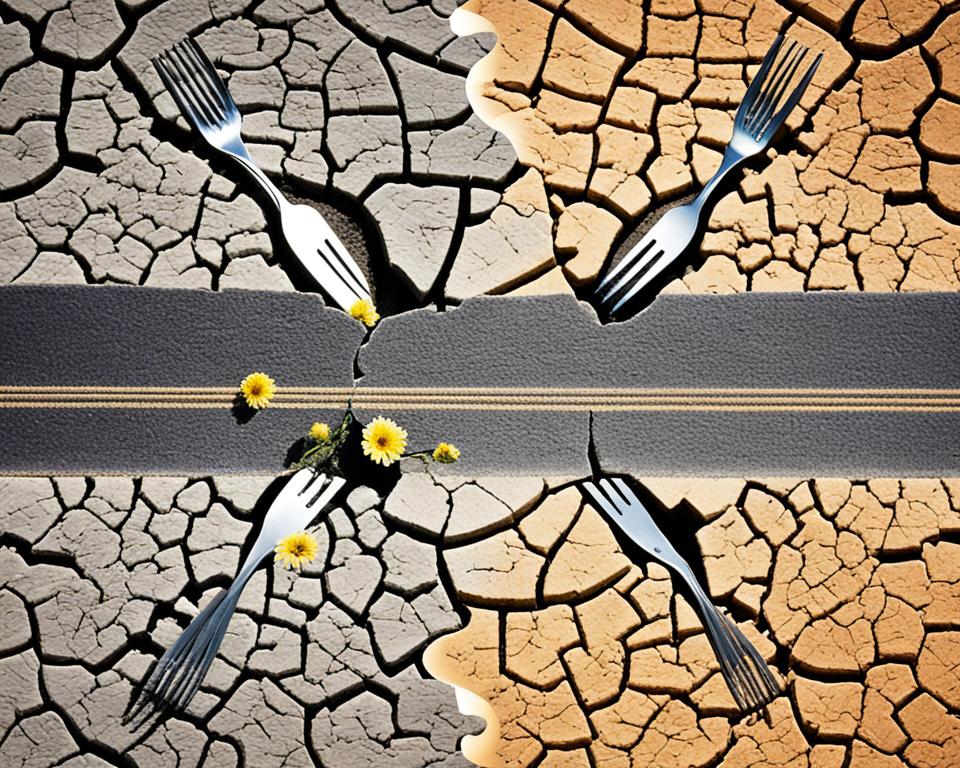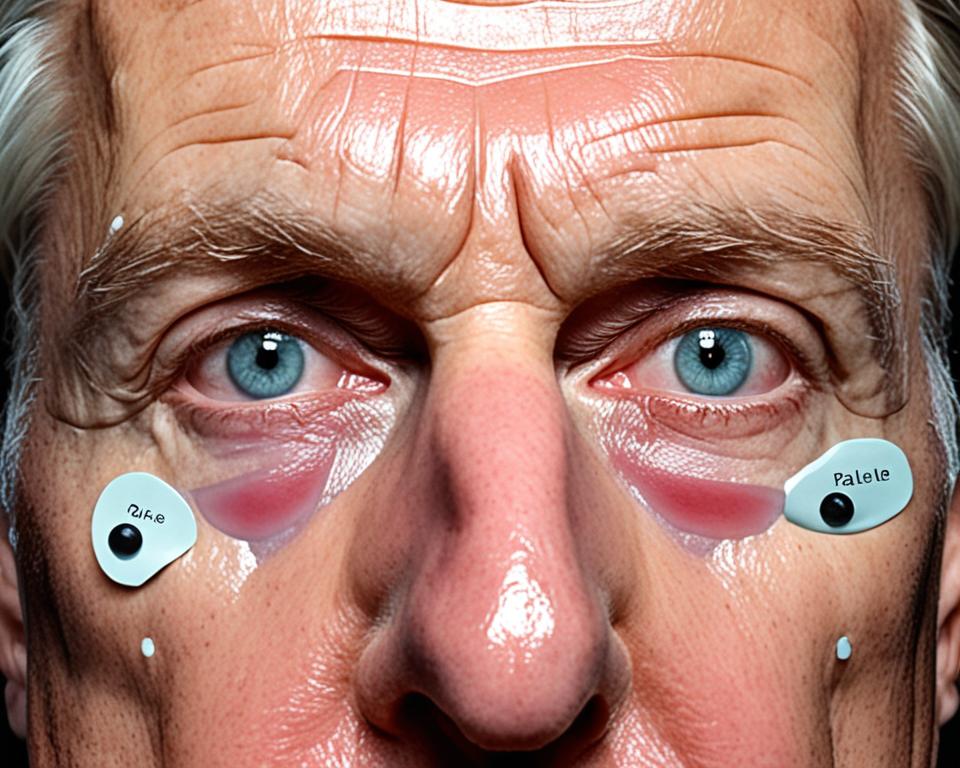Receiving a stage 5 kidney failure diagnosis can feel overwhelming. This stage is also called end-stage renal disease (ESRD). Dialysis is the common treatment. But, some people might not want to do dialysis. They look for other ways to manage their health. This article looks into what life might be like without dialysis for stage 5 kidney disease patients.
Read interesting things at : grenzgamer
Key Takeaways
- Stage 5 kidney failure, or end-stage renal disease, is where the kidneys are at their worst. They have lost about 85-90% of their function.
- The life expectancy for those with stage 5 kidney failure can really differ. It depends on many things.
- Things like why the kidneys failed, other health problems, and how well someone takes care of themselves matter a lot.
- Choosing supportive care, not dialysis, is an important option.
- Figuring out end-of-life choices and finding support are big steps for patients and their families.
Understanding Stage 5 Kidney Failure
End-stage renal disease (ESRD) is the final, severe stage of chronic kidney disease. Kidneys in this state can no longer clean waste or extra fluids from the body well.
Causes and Symptoms of End-Stage Renal Disease
ESRD can be caused by diabetes, high blood pressure, kidney inflammation, and a genetic kidney condition. People with ESRD might feel very tired, lose hunger, swell, feel sick, or get confused.
- Diabetes causes about 44% of ESRD cases.
- High blood pressure leads to 28% of ESRD diagnoses.
- Some cases come from glomerulonephritis, which inflames kidneys.
- Polycystic kidney disease, where cysts grow on kidneys, is another trigger.
The signs of stage 5 kidney failure can make life very hard. Tiredness, not wanting to eat, swelling, feeling sick, and confusion are common.
| Symptom | Description |
|---|---|
| Fatigue | Feeling very tired and low on energy due to body waste buildup. |
| Loss of Appetite | Not wanting to eat, sometimes with feeling like you’ll throw up. |
| Swelling | Fluid collecting, mostly in legs, ankles, and feet, because kidneys can’t regulate well. |
| Nausea | Feeling sick or uncomfortable, often leading to throwing up from waste buildup. |
| Confusion | Problems with thinking or remembering clearly, caused by too many toxins in the blood. |
Knowing what causes ESRD and its signs is key for both patients and health workers. It helps in handling this critical stage of kidney disease well.
Renal Disease Prognosis Without Dialysis
If someone’s kidneys fail in stage 5 and they don’t choose dialysis, the outlook isn’t good. The kidneys can’t clear waste and fluids. This leads to a quick health decline and death. Without dialysis, lifespan is usually under a year for those with end-stage renal failure. Yet, this time can change based on health, disease progress, and other health issues.
Choosing not to do dialysis is a big decision. It looks at what the person wants, their life quality, and health. Some opt out because dialysis is hard or risky. Others think it won’t boost how long or good life will be.
But, it must be known that the future without dialysis doesn’t look good. As kidneys fail more, waste and fluids build up. This causes tire, vomit, unclear thinking, and even coma. Survival chances at this point are very slim.
If someone and their loved ones are thinking about not doing dialysis, they should talk a lot with doctors. They need to fully get what might happen and how to handle it. Palliative care and other supports can also help with symptoms. This brings some comfort during such a hard time.
Life Expectancy with Stage 5 Kidney Failure
The life expectancy varies greatly for those with stage 5 kidney failure not on dialysis. It depends on many things. These include age, health, other medical issues, cause of kidney disease, and level of care.
Factors Affecting Survival Rates
Generally, without dialysis, life might be several months to a year. Health, age, and care level all play a big role. These factors can change life expectancy quite a bit.
- Age: Older individuals might live less time than younger ones with similar conditions.
- Overall Health: Those with other health problems might not live as long without dialysis.
- Cause of Kidney Failure: Diseases like diabetes can quicken the decline and affect lifespan.
- Supportive Care: Good palliative care can improve quality of life and maybe extend it.
Taking these points into account, life expectancy is hard to pin down without dialysis. Because each person’s case is unique. So, talking with a doctor is vital for a clear outlook on life expectancy.
“The decision to forgo dialysis is a deeply personal one, and it’s crucial for patients and their families to have open and honest discussions with their healthcare team to understand the potential implications and make an informed choice.”
Conservative Kidney Management Approach
Some patients with stage 5 kidney failure might consider a conservative kidney management approach. It is an option instead of dialysis. Rather than focusing on dialysis or a kidney transplant, this approach looks at relieving symptoms. It also aims to keep the patient’s quality of life high, and provide supportive care.
It might include changes in what you eat. This is to make things easier for the kidneys. Doctors also handle medications to control other health issues. They offer palliative care that deals with physical, emotional, and spiritual needs.
The goal is simple. It’s about helping people with stage 5 kidney failure live well. This is done without using hard medical treatments. By putting the patient’s life quality first, conservative kidney management stands as an option. Especially for those not looking to start or continue dialysis.
But, not every stage 5 kidney failure patient fits this method. Health status, what the patient prefers, and how the disease advances are key. They help decide if this path is right. Each case should be looked at closely.
“The conservative management approach allows us to focus on the patient’s comfort and quality of life, rather than solely on prolonging survival at all costs.”
– Dr. Sarah Abrams, Nephrologist
This approach offers personalized and complete care. Conservative kidney management is an option for some patients. This is especially true for those looking for a dialysis alternatives.
Palliative Care for End-Stage Renal Disease
People with stage 5 kidney failure have a tough choice to make about dialysis. For those who opt out, palliative care becomes vital. It helps manage pain, discomfort, and other symptoms, making life better. The goal is to provide support in tough times.
Managing Pain and Discomfort
In ESRD, easing pain is a top priority. Medications like opioids help control intense pain. For issues like nausea and vomiting, antiemetics are used. These are common in kidney failure.
Itching, swelling, and breathing problems are also tackled through palliative care. A team approach ensures each patient gets a tailored plan. This plan aims to meet their specific needs.
| Symptom | Palliative Care Interventions |
|---|---|
| Chronic Pain | Opioid medications, topical pain relievers, nerve blocks |
| Nausea and Vomiting | Antiemetic medications, dietary modifications, acupuncture |
| Itching | Antihistamines, moisturizers, cold compresses |
| Swelling | Diuretics, compression stockings, elevating the affected limb |
| Difficulty Breathing | Oxygen therapy, respiratory medications, positioning techniques |
Addressing physical symptoms makes a big difference. It offers ESRD patients more comfort and control. This is key in their care.
Helping with emotional and social aspects is also vital. Families and patients face big challenges. Professionals offer counseling, social work, and community links. They ensure a full support system is in place.
Quality of Life Considerations
People with stage 5 kidney failure must decide if they will stop dialysis. This choice means considering how their quality of life might be. The quality of life with end-stage renal disease plays a big role in choosing the right care and their happiness.
Stopping dialysis could lower both physical and mental health in those with ESRD. They might get more tired, eat less, and need more help from others. Not having dialysis can also affect how they feel about their independence and control over their lives.
Yet, some might think keeping their independence and avoiding a strict dialysis schedule is more important. They might prefer a care plan that focuses on comfort and quality of life with end-stage renal disease, rather than sticking to treatments that prolong life.
Making the choice to stop dialysis is very personal. It should be discussed with their healthcare team to fit their needs, beliefs, and health. Thinking about the effect on the quality of life with end-stage renal disease helps make a decision that’s right for them.
“The decision to forgo dialysis is a deeply personal one, and it’s essential to weigh the potential impact on the patient’s quality of life.”
Dialysis Alternatives for Stage 5 Kidney Failure
Stage 5 kidney failure, or end-stage renal disease (ESRD), can be treated without dialysis. Exploring other treatments may fit a patient’s needs better. Alternative options can offer personalized and flexible ways to manage ESRD.
Peritoneal Dialysis
Peritoneal dialysis lets patients do their treatment at home. They infuse a sterile solution into their abdominal cavity. Then, this solution absorbs waste and extra fluid.
Some find this more convenient than visiting a dialysis center.
Kidney Transplantation
A kidney transplant is an option for some with stage 5 kidney failure. It replaces a damaged kidney with a healthy one. This can be from a living or deceased donor.
A successful transplant can bring long-term benefits and improve quality of life.
But, not everyone can get or might want these options. In such cases, focusing on symptom relief and palliative care could be the best path.
| Alternative Treatment | Description | Potential Benefits |
|---|---|---|
| Peritoneal Dialysis | A form of dialysis performed at home, using a sterile solution infused into the patient’s abdominal cavity | Greater autonomy and flexibility in treatment, elimination of the need for regular visits to a dialysis center |
| Kidney Transplantation | Replacement of the patient’s non-functioning kidney with a healthy one, either from a living or deceased donor | Potential for a more long-term solution and improved quality of life |
The right treatment depends on a person’s health and what they want. Working with their healthcare team, patients can find the best choice. It’s about finding what works for them and their situation.
Stage 5 Kidney Failure Life Expectancy Without Dialysis
People with stage 5 kidney failure face a critical choice. This is when their kidneys stop working fully, known as end-stage renal disease (ESRD). They can decide not to go on dialysis. If they choose this, how long they may live can depend on many things.
Doctors help these people decide, looking at their health, age, and what they think is best for them. Usually, without dialysis, most won’t live more than a year. Yet, some may live longer by focusing on easing symptoms and enjoying what time they have.
Many things can change how long someone might live without dialysis:
- Age: Younger patients usually have a brighter future if they don’t do dialysis. They might have less serious health problems.
- Cause and Progression of Kidney Disease: Why their kidneys failed and how fast it worsens matters. A slow decline means more time without dialysis.
- Overall Health Condition: Health in general makes a big difference. Fewer other sicknesses help someone live longer without dialysis.
- Availability of Supportive Care: Things like pain control and careful symptom care extend and improve life. This care is essential for those not on dialysis
Even though without dialysis, many in stage 5 don’t live past a year on average, others do. Some people could make it for a few more years. Staying in touch with doctors, focusing on feeling better, and planning ahead is key. It helps patients and their families deal with this difficult choice and time.
“The choice not to do dialysis is very personal. It is vital for patients and their families to talk openly with doctors. This helps in understanding what might happen and choosing the best path for them.”
Navigating End-of-Life Decision-Making
Deciding to stop dialysis for stage 5 kidney failure is a big choice. It’s both important and emotional. Patients and their families need to think about what matters most to them. This includes their values and what quality of life they aim for. Talking about and writing down end-of-life care wishes is key. It helps ensure the decisions made respect the patient’s choices.
Advance Care Planning and Patient Preferences
Advance care planning is vital for people with stage 5 kidney failure. This process involves talking and writing about what the patient wants at the end of their life. It ensures the decision made matches the patient’s goals and aspirations.
- Discuss what level of medical help the patient wants. This might include choosing dialysis or palliative care.
- Find out what the patient values most and what makes their life meaningful. It could be independence, less pain, or time with family.
- Write down the patient’s wishes in an advance directive or living will. This makes their choices known and legally binding.
Making tough decisions about end-of-life doesn’t have to be done alone. With careful thought and planning, patients and their loved ones can face this challenge together. They can feel sure that they’re acting in line with the patient’s beliefs and choices.

“The most important thing is to listen to the patient and understand their goals, values, and preferences. This guides the entire decision-making process and ensures we’re honoring their wishes.”
– Dr. Emily Watkins, Palliative Care Specialist
Emotional and Psychological Support
Dealing with stage 5 kidney failure and deciding to not do dialysis is hard. It deeply affects patients and their loved ones. Getting emotional and psychological support is key at this time. It helps people sort through their tough emotions and choices.
Teams of healthcare workers, social workers, and mental health experts are here to help. They offer therapy, link patients to support groups, and aid in understanding their feelings. This includes emotions like sadness, worry, and not knowing what the future holds.
- Counseling is useful for patients and families to process their feelings and decision effects.
- Support groups let people in similar situations lean on each other, creating a support network. It’s a place to exchange stories and how to deal.
- Mental health professionals can arm patients with tools to better handle stress, sadness, and other mental hurdles.
Focusing on emotional and psychological support is vital for healthcare teams. It makes patients and their families feel understood and supported. As a result, they’re more able to choose options that match what matters most to them.
“The emotional and psychological support I received from my care team was invaluable in helping me navigate the challenges of my kidney disease. They listened, validated my feelings, and provided me with the resources I needed to cope.”
Getting this support changes things for those suffering from stage 5 kidney failure. By working on the emotional and psychological parts of their journey, patients get to focus more on their health. They can live their lives to the fullest, even with their condition.
Financial and Practical Considerations
People at stage 5 kidney failure who opt out of dialysis might face tough money and lifestyle issues. They’ll deal with high medical costs and might have to arrange or change a lot of things. This includes living, getting around, and their normal activities. Looking into insurance, government programs, and local support can ease some stress.
Healthcare costs are a big concern. Without dialysis, healthcare might include hospital visits, special drugs, and treatments to ease pain. These costs add up fast, affecting not just the patient but their family’s finances too.
But it’s not just medical bills. Patients might need to change their homes, like adding ramps, or get help with getting around. These changes can impact daily life and finances. Families might need to help with cooking, cleaning, and personal care.
Exploring Available Resources
There are many resources to lighten the load on those with stage 5 kidney failure. These include:
- Insurance coverage: It’s important to know what your health insurance covers, including end-of-life care.
- Government assistance programs: There’s help like Medicaid, Medicare, or local programs depending on where you live and your finances.
- Community-based support services: Organizations can provide things like rides, food, or help at home to assist those with advanced kidney issues.
By seeing what help is out there and talking to doctors and specialists, patients and their families can better handle the costs and changes of stage 5 kidney failure without dialysis.
“Careful planning and being resourceful can greatly reduce the hardships faced by those with stage 5 kidney failure choosing not to dialyze.”
Ethical Dilemmas in Advanced Kidney Disease
Patients at stage 5 kidney failure must decide whether to start dialysis. This choice brings many ethical questions. They need to think about their right to say no to treatment. Also, they must balance life prolongation with life quality and the advice from their doctors.
The core issue here is patient autonomy. It’s about the patient’s right to choose their care path. For instance, some might choose not to have dialysis, even though doctors recommend it. This choice can cause strain between the patient and their healthcare team.
Another ethical issue is beneficence, a provider’s duty to act in the patient’s interest. Doctors must consider the benefits of dialysis, like more time, against what the patient values. When patients prefer not to have dialysis, this choice can be hard for everyone involved.
To deal with these challenges, communication and shared decision-making are crucial. It is vital that everyone understands the choices at hand. And that they receive the support needed to make decisions that feel right to them.
“The right to refuse life-sustaining treatment is a fundamental part of patient autonomy, but it can create tension when healthcare providers believe dialysis is the best course of action.”
Showing empathy and respect as healthcare providers is key. This way, they help patients at this stage of kidney disease. They can make choices that are in line with their personal beliefs and keep their dignity.

Remaining Time: Making the Most of It
Stage 5 kidney failure is serious, and some don’t want dialysis. For them, this time is special. It’s a chance to focus on what’s important. They can do things that make them happy and help them grow spiritually. Building strong and loving relationships is key. So is making sure their end-of-life wishes are met.
Healthcare and loved ones play a big part in this journey. They can help patients get the most out of their time. It’s about feeling good, spending time with those who matter, and finding peace. This way, the journey becomes easier and more meaningful.
Choosing not to have dialysis is a significant choice for these patients. Working with their health team is crucial. Together, they can choose the best path based on personal values. This time should be about leaving a positive mark, finding serenity, and treasuring every moment.



